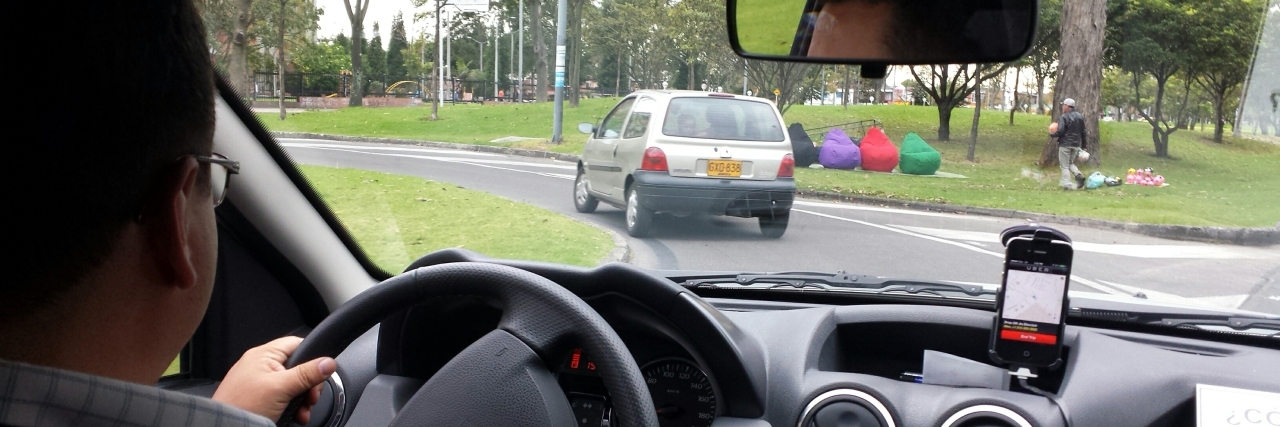On Thursday, Lisa Irving, who is blind and uses a guide dog, was awarded $1.1 million by Uber after an attribution case that claimed Uber violated the Americans with Disabilities Act. According to Forbes, Irving “was harassed or denied rides on 14 occasions in 2016 and 2017, which caused her to be late for work on two occasions and lose her job.”
This is not the first time Uber has been under fire for failing to accommodate disabled people. A current lawsuit from an Uber user in New Orleans also claims that the rideshare company is violating the ADA by not having accessible rideshare options in their city.
While I have never been denied a ride, I have faced discrimination from Uber drivers. I used to have a perfect score of five until I started to use my cane during flares from my autoimmune disease. The first time my perfect score of five dropped was when I was hobbling with a cane to the car after being treated in the emergency room for severe numbness in my legs. I was not late. I was not rude. But, my driver seemed to take a problem with the fact that I am disabled.
Due to the inaccessibility of public transportation, rideshare companies like Uber have the opportunity to step up and fight against ableism, something that Irving’s lawyer Catherine Cabalo touched on in a statement.
Of all Americans who should be liberated by the rideshare revolution, the blind and visually impaired are among those who stand to benefit the most. However, the track record of major rideshare services has been spotty at best and openly discriminatory at worst.
According to Forbes, Uber had claimed in arbitration they were not responsible because their drivers are independent contractors. If one driver treated a rider poorly, that may be a probable excuse. But, disability discrimination is a systemic issue among Uber drivers. Uber needs to step up and help make its rideshare service more accessible for everyone.
Image via Wikimedia Commons/Alexander Torrenegra

